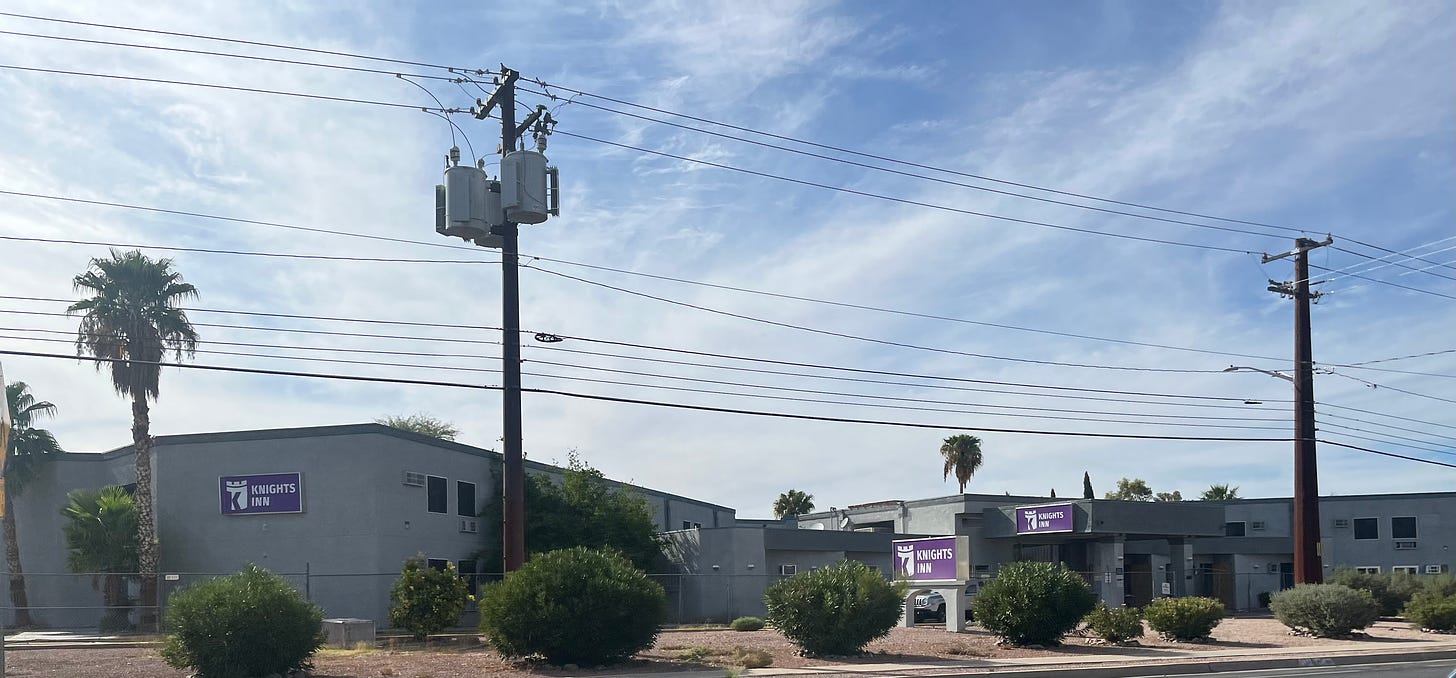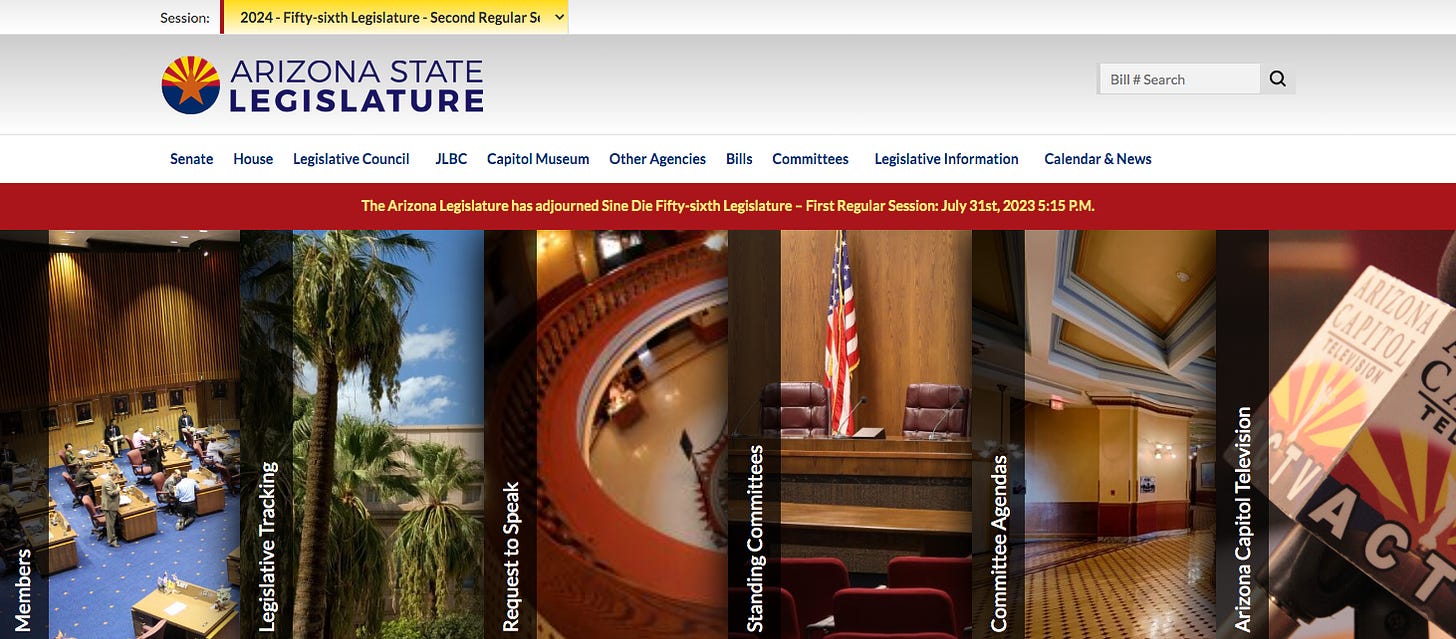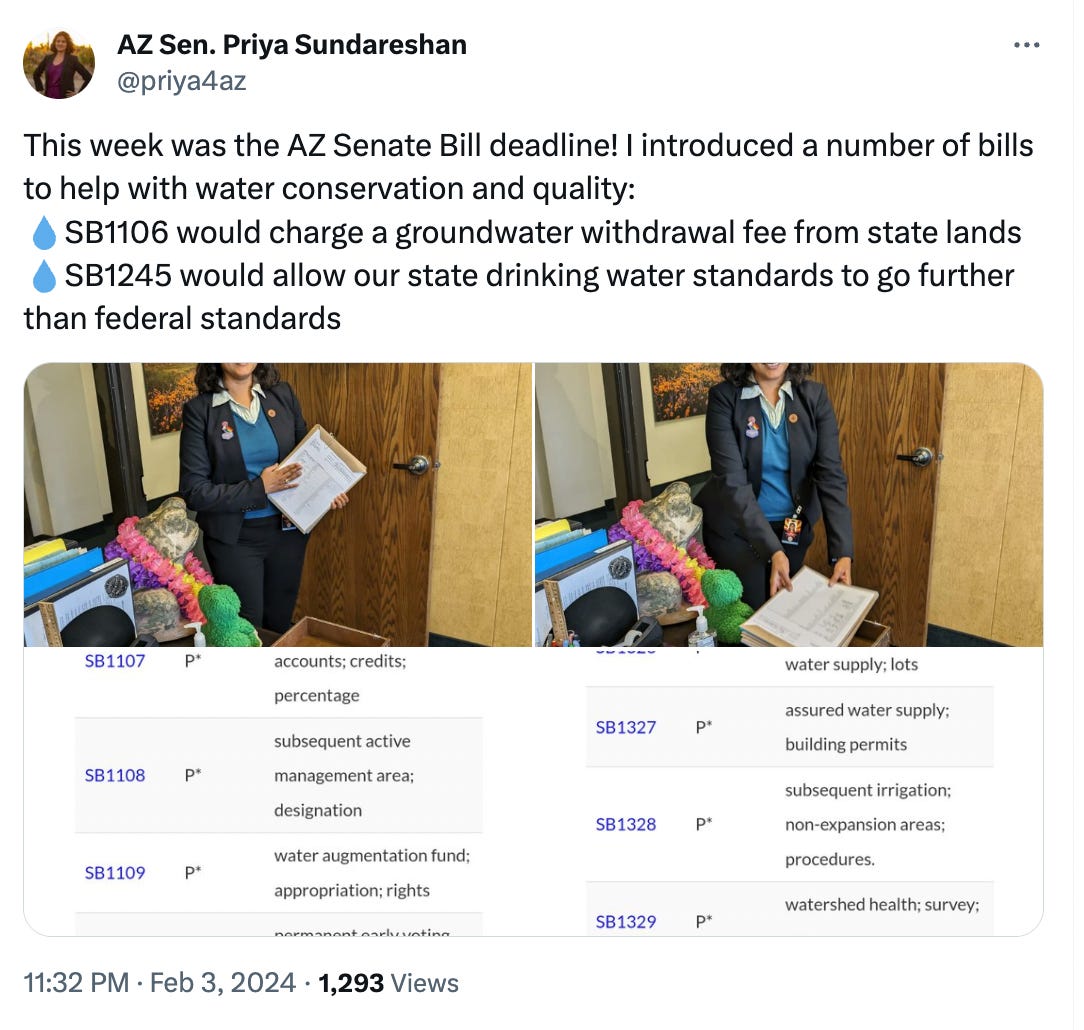The Daily Agenda: New sales tax, lawsuits incoming, and more
Local homeless effort gets a boost … Busy week for Wadsack … Counties want clarity on election deadlines.
We’re back with another preview of what your local elected officials are doing this week, from the City of Tucson, Pima County, and Tucson-area state legislators.
Tucson voters could decide on a new sales tax in August. The Tucson City Council is planning to set up a special election at their Tuesday meeting, although it’s still not entirely clear what the sales tax revenue would do, how much money it would raise, or how much it would add to prices. A memo from city staff said the sales tax would help put the “right foundational elements in place” to support Plan Tucson, while the meeting agenda says it would “fund community investments to promote quality of life.” The cost of holding the election is expected to be $1.1 million or less.
The city council is preparing for a lawsuit over its prevailing wage ordinance. The council passed an ordinance last month to establish a higher wage for large-scale public works contracts, as did Phoenix. The Goldwater Institute sued Phoenix over its ordinance and they plan to sue Tucson, saying the ordinances violate the state constitution’s due process protections. This is no surprise to Tucson officials. They anticipated lawsuits when they passed the ordinance. They cited a state attorney general opinion that said it was legal for cities to pass a prevailing wage for the first time in decades, thanks to voters approving a ballot measure in 2016 that let cities establish a minimum wage.
The council postponed a discussion about sharing costs for fare-free transit. The agenda doesn’t give any details about why the item was removed. City council members told KOLD last week they were worried the University of Arizona’s financial troubles would make it difficult for the UA to help cover the cost of fare-free transit, which UA students frequently use. The council members have long hoped the UA, Pima Community College, and local school districts would pitch in, but an agreement is still out of reach.
The state is putting $3.5 million toward a local effort to deal with eviction-related homelessness at the former Knights Inn (which we wrote about last September). The state is joining a bunch of local government entities that already are invested in the effort at the hotel, now know as The Craycroft. The City of Tucson bought the hotel last summer. Pima County moved its Emergency Eviction Legal Services program into the hotel and hired three staff for case management and general support. The Tucson Unified School District ensures children continue at their schools while in the program. Right now, 86 people are staying at the shelter. The money will go toward operating payments to the city, direct rehousing assistance, capital improvements (such as building a fence around the property), food, and hotel/motel vouchers. With the new funding, officials expect the program to continue through 2026.
The county supervisors are set to approve $100,000 for the legal defense of the sheriff’s department and the deputies who fatally shot Bradley Lewis, 19, in 2021. The Lewis family filed a lawsuit claiming deputies used excessive force. Deputies said they mistook Lewis’ key fob for a gun and opened fire after Lewis charged them, but the family says the shooting could not have unfolded as deputies said. The sheriff’s department didn’t have body-worn cameras at the time, so there is no video evidence. The county has now set aside $350,000 for legal representation in the lawsuit.
State Sen. Justine Wadsack, a Tucson-area Republican who represents Legislative District 17, is going to have a busy week. A half-dozen bills she introduced or co-sponsored are up for hearings.
Today, SB 1286, gets a hearing in the Senate Committee on Elections. It would prohibit counties from using voting centers. Instead, the bill would require schools to close on election days and open up their gymnasiums as precinct polling places.
Tomorrow, SB 1147, which moves $250,000 into a fund to compensate landowners who lose livestock to wolf predation, gets a hearing in the Committee on Appropriations. At the same hearing, legislators will consider SB 1191, which would include Prader-Willi syndrome, a rare genetic condition that causes obesity and intellectual disability, in the list of developmental disabilities that get services from the state.
On Wednesday, SB 1287, which bans government-owned facilities from exposing children to sexually explicit materials or filming sexually explicit acts on site, will be up for debate at a hearing in the Committee on Government. SB 1583 would require schools to post a long list of parental rights. That bills gets a hearing in the Committee on Education.
On Thursday, SB 1189, which would block cities and counties from prohibiting gun shows, gets a hearing in the Judiciary Committee.
Among other Tucson-area Republican legislators, State Rep. Rachel Jones’ bill, HB 2546, which would exempt vehicles made after 2018 from annual emissions testing, among other exemptions, gets a hearing on Tuesday in the House Committee on Natural Resources, Energy and Water.
State Rep. Cory McGarr introduced HCR 2027, which would designate each seat in a House legislative district as seat “A” or “B” and require candidates to run in one or the other. It gets a hearing on Wednesday in the House Committee on Municipal Oversight and Elections.
Republican legislators control which bills get hearings, so don’t expect to see many hearings for bills from Tucson-area Democrats.
Write a letter to the editor (email Curt at curt@tucsonagenda.com). Or you can reach out to your city council member, county supervisor, state representative or senator. You can watch meetings of the Tucson City Council here and the Pima County Board of Supervisors here.
It’s the thought that counts: University of Arizona President Robert C. Robbins told the Arizona Daily Star’s Ellie Wolfe that he would “absolutely” take a pay cut and has already made that offer more than once. Robbins made the comment after being told that the Star gets many emails from readers asking why he doesn’t take a salary cut amidst the UA financial crisis, adding that he temporarily took a 37% pay cut as a result of furloughs during the pandemic.
Deadline debate: All 15 Arizona counties are asking the legislature to find a solution to an issue with the state’s election calendar, saying that the state risks missing key federal deadlines for the presidential election if a solution isn’t found by Friday, Arizona Public Media’s Paola Rodriguez reports. A 2022 election law lowered the threshold for an automatic recount in close races, but now if there’s a recount after the primary, the state could miss deadlines and military voters overseas might not be able to return their ballots in time for the general election. The state has been tasked with finding 19 additional days for the Primary election and 17 additional days for the General Election to conduct recounts.
Meet the candidates: The Arizona Luminaria’s Yana Kunichoff profiles the four potential candidates for Arizona’s United States Senate race, noting that incumbent Kyrsten Sinema hadn’t filed a statement of interest as of early February. Sinema, who switched her party affiliation from Democrat to independent, will only appear on the Nov. 5 general election ballot if she gathers enough signatures.
Changing course: Santa Cruz County has significantly changed its Cuisine Tourism Initiative after criticism by residents in an online survey and two public meetings, the Patagonia Regional Times’ Marion Vendituoli writes. The initiative is funded by a $300,000 federal grant to develop a countywide food tourism action plan that connects the wine sector with other businesses in the county to increase tourism spending. It initially focused on consulting with winemakers and tourism in the Sonoita-Elgin area and left out other constituents. This created suspicion, confusion and hostility towards the initiative itself.
Border breakdown: The U.S. Senate unveiled a bill that would make some of the most dramatic changes to border policies in recent memory. Arizona Daily Star columnist Tim Steller breaks down the politics and policies surrounding the bill. He highlights an attempt from former President Donald Trump and his allies in Congress to tank the bill for political reasons, despite the bill including many conservative priorities.
“This time, though, Trump has made plain what’s really going on: They don’t want to solve these problems while the problems serve as key political leverage. They want to leave them unresolved at least long enough to get into office and really get radical,” Steller writes.
Tiny but trendy: The Daily Wildcat’s Sohi Kang digs into the growing local trend of microgreens, which are baby versions of bigger edible plants, harvested after only a few weeks at the seedling stage. There are upwards of 60 varieties, including kale, spinach, peas and radish greens. Microgreens have between four and 40 times the nutrients of their mature plant and a more sustainable production process.
“I would say in the last 10 to 15 years […], as we approach the present, its popularity is increasing exponentially,” Joel Cuello, University of Arizona professor of agricultural and biosystems engineering, said.
The Pima County Interfaith Council is holding a civic academy about voting action, integrity and safety on Thursday, with special guests Pima County Recorder Gabriella Cázares-Kelly and Elections Director Constance Hargrove. The event runs from 6 to 7:30 p.m. and will be located at St. Pius X Church, 1800 N. Camino Pio Decimo.
The academy is for anyone interested in learning more about the voting process, including mail-in voting, and how officials maintain integrity and safety in elections. The event is free to attend, but you need to RSVP in advance.
The 2024 General Election is critically important and we want to make sure we’re able to bring you as much coverage as possible. Help us become sustainable and keep you informed.











It seems like closing schools on election day would put additional childcare burdens on many parents - potentially disenfranchising those who can't afford or don't have access to alternatives.
A new City of Tucson sales tax? Before the city asks for more sales tax (a tax on the poor and middle class), they should be transparent in how much money they are giving away to developers and corporations in GPLETs and other perks. The city and county are both out of compliance with state transparency laws on the tax giveaways. I wrote about it last summer. The links are still broken. Prescott, Flagstaff, Phoenix -- all display the names of business that got tax breaks, what they got and what they're building. In Tucson, we can't follow the money. That's a problem.